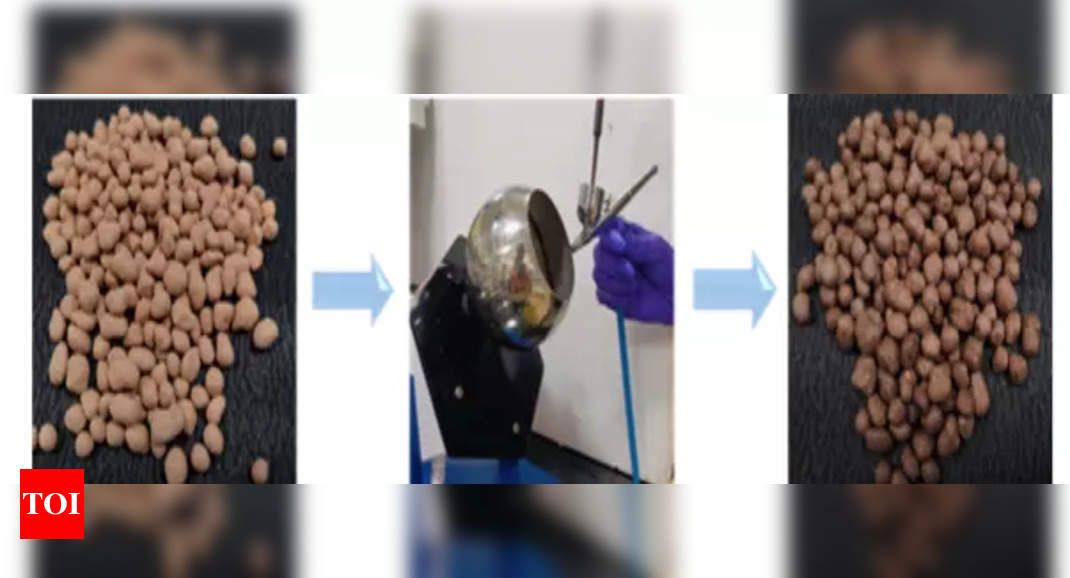Game-Changing Nano-Coating Material Boosts Fertilizer Efficiency, Threatens Traditional Chemical Farming Method

BENGALURU: Scientists from the Institute of Nano Science and Technology (INST) have made a groundbreaking discovery in the field of environmental science by developing a mechanically stable, biodegradable, and hydrophobic nano-coating material that can significantly enhance the nutrient use efficiency of chemical fertilizers.
According to researchers, this innovative coating material, made from nanoclay-reinforced binary carbohydrates, has the potential to reduce the recommended fertilizer dose while maintaining enhanced crop production. The Department of Science and Technology (DST) hailed this breakthrough as a major step in using fertilizers more efficiently and reducing the risks associated with excessive chemical fertilizer use.
The research, conducted by a team of scientists led by B.K. Sahu, used the drum rotor method to coat muriate of potash (KCl), an essential potassium fertilizer for 80% of crops, with binary carbohydrates chitosan and lignin, leveraging anionic clay as a reinforcement agent for stable coordination bonds.
This eco-friendly nano-coating material is made from natural, low-cost materials such as nano-clay, chitosan, and starch, making it an attractive alternative to traditional chemical fertilizers. The researchers' findings suggest that this coating material can tune the slow release of nutrients, limiting their interaction with rhizosphere soil, water, and microbes.
The discovery comes at a time when the world is grappling with the challenges of sustainable farming and environmental conservation. As DST stated, "For the past 50 years, as part of the Green Revolution, frequent chemical fertilizer applications have been used to maintain soil nutrients and increase plant productivity. However, frequent and excessive use poses a risk to global sustainable development."
The researchers' innovative solution could revolutionize the way fertilizers are used in farming, reducing their environmental impact and promoting more sustainable agricultural practices. As scientists continue to explore new ways to improve fertilizer efficiency, this breakthrough nano-coating material is set to make waves in the world of agriculture and beyond.
